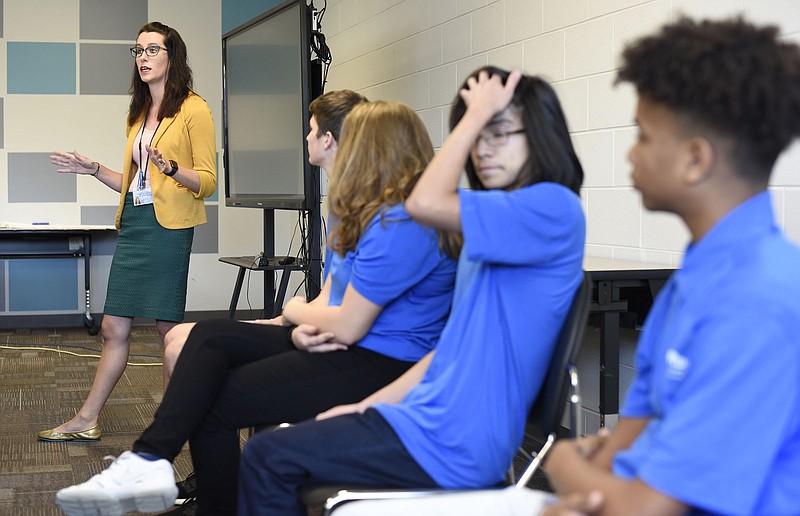Fifty years ago, across the South, federal courts ordered the busing of students to achieve a racial balance of Black and white students in public schools.
One upshot was the desertion of families from previously largely white suburbs to even whiter suburbs so white students would not have to attend school with higher numbers of the newly bused-in Black students, or would not be bused to historically Black schools. Another upshot was the rise of private schools, which would be largely white because of their parents' ability to pay for such an education.
For those who stayed and finished their secondary educations in the newly integrated schools, the atmosphere offered - among other things - an ability to interact in a world more like they were likely to encounter in their future work lives and an ability to foster relationships with people who were different from themselves.
Today, public schools face different pressures to retain students. They still must compete with the private academies, which offer excellent educations and which a larger Black upper middle class increasingly can afford. In some states, they also compete with voucher-assisted educations which give lower-income families a way out of struggling public schools. And homeschooling has become an even bigger option for many families.
The reasons that families choose to remove their students from public schools - and why teachers also leave - are varied and many, but one that cannot be overlooked is the lack of discipline in the classroom. Over the last several decades, the trend has been that teachers and students must accept more and more disruption in the classroom without punishments. The thought is that removing disruptive students from the classroom only keeps those students from getting the education they need.
However, the more a teacher must deal with one disruptive student, the less learning every other student receives.
A bill approved by the Tennessee state House and Senate - and has been pushed by the Professional Educators of Tennessee - would change that. The Teacher's Discipline Act would create a uniform process to deal with such students. It wouldn't vary from school to school and teacher to teacher.
Among its six steps are for teachers to document actions taken to address the student's behavior, to speak with the student's parent or guardian, and to involve a school counselor or other professional to help.
If those steps are exhausted, the principal would take action based on the district's discipline process or student code of conduct. The student might then be placed in another classroom, given in-school suspension or referred to an alternative education program. Or the teacher's petition might be denied and an attempt be made to find additional support for the teacher.
The bill's detractors have a fair point that the legislation distracts from the more important goal of the state providing enough money for districts to hire the nationally recommended number of school-based counselors, social workers and nurses for each school.
We believe both more money is needed for mental health-related staff members and a uniform policy for discipline. Additional staff members will be able to deal with some of the problems, be they adverse childhood experiences - problems from home that manifest themselves in the classrooms - or not. But others will not be worked out with several sessions with a school counselor or other professional.
Almost every teacher you talk to has a story or six about students who have been classroom disruptors, who do or say unthinkable things to the teachers or other students, and whom they are forced to deal with rather than have them leave the classroom. The result, in every case, is a diminished classroom learning environment.
Cody Patterson, communications officer for the Hamilton County Schools, said the district doesn't comment on bills still in the legislative process. However, he noted the district "has been proactively addressing student behavior for several years through our 2019 revision of the student code of acceptable behavior and our investments in whole child supports, as well teacher professional development with COMP (Classroom Organization and Management Program) training."
J.C. Bowman, executive director of Professional Educators of Tennessee, envisions the bill making the discipline process more objective, methodical and supportive, with the result that removal from the classroom is a rare occurrence, rather than a more frequent event, which detractors fear.
"But we live in a civil society, and rules matter," he told Chalkbeat. "If we don't have consequences for continued bad behavior, we'll have more bad behavior."
And neither the teachers who have to deal with it, nor the students whose educations suffer from it, deserve that.
